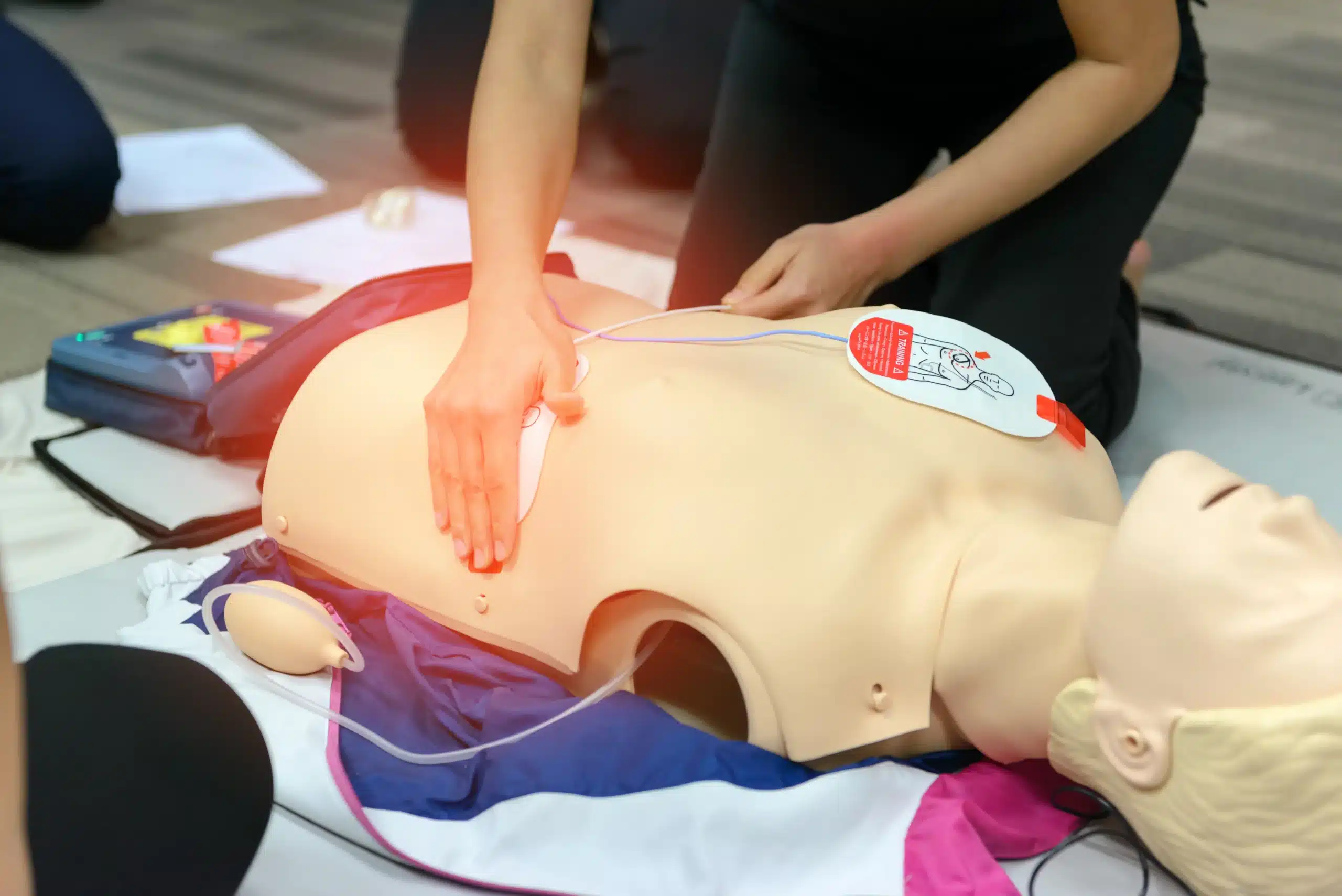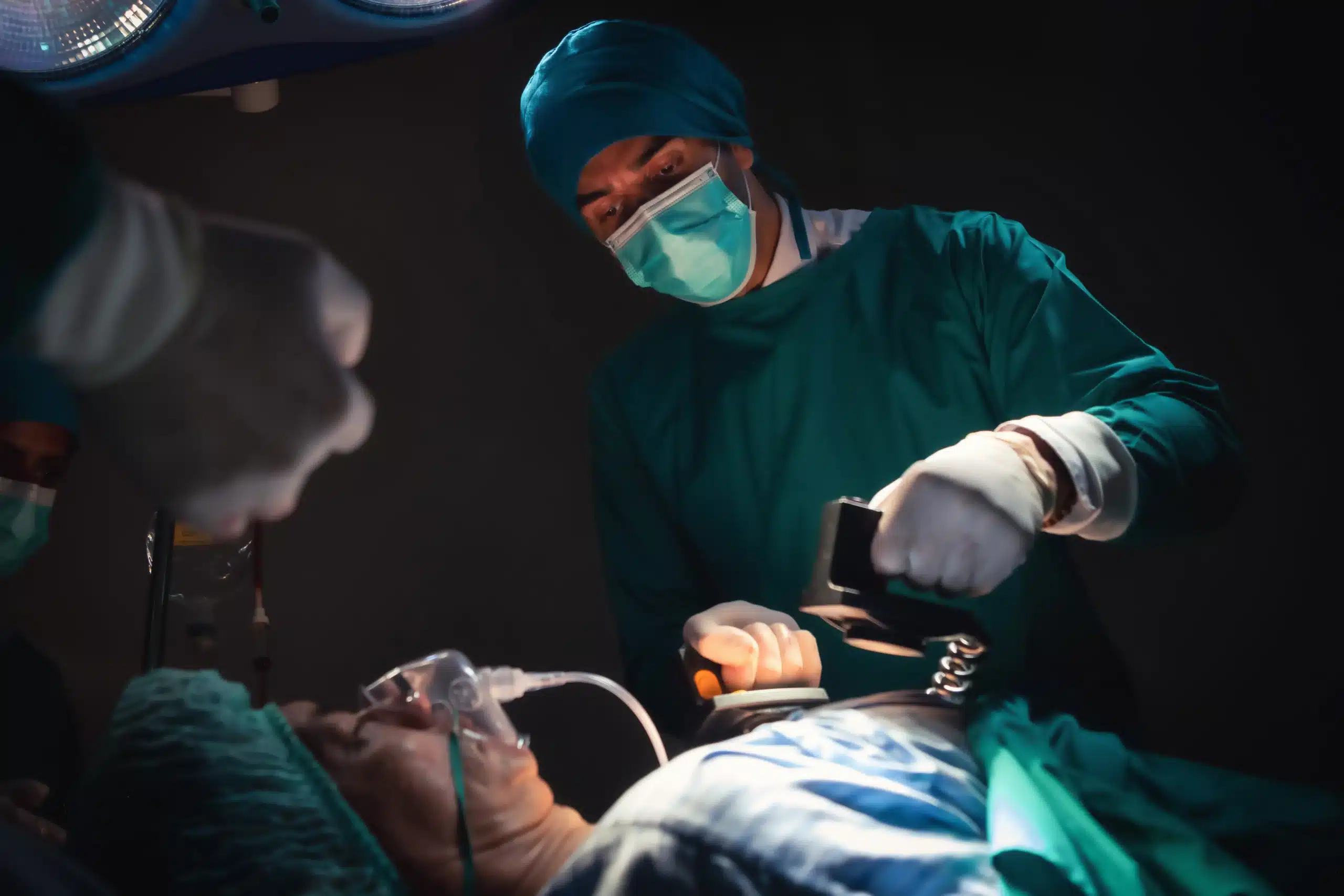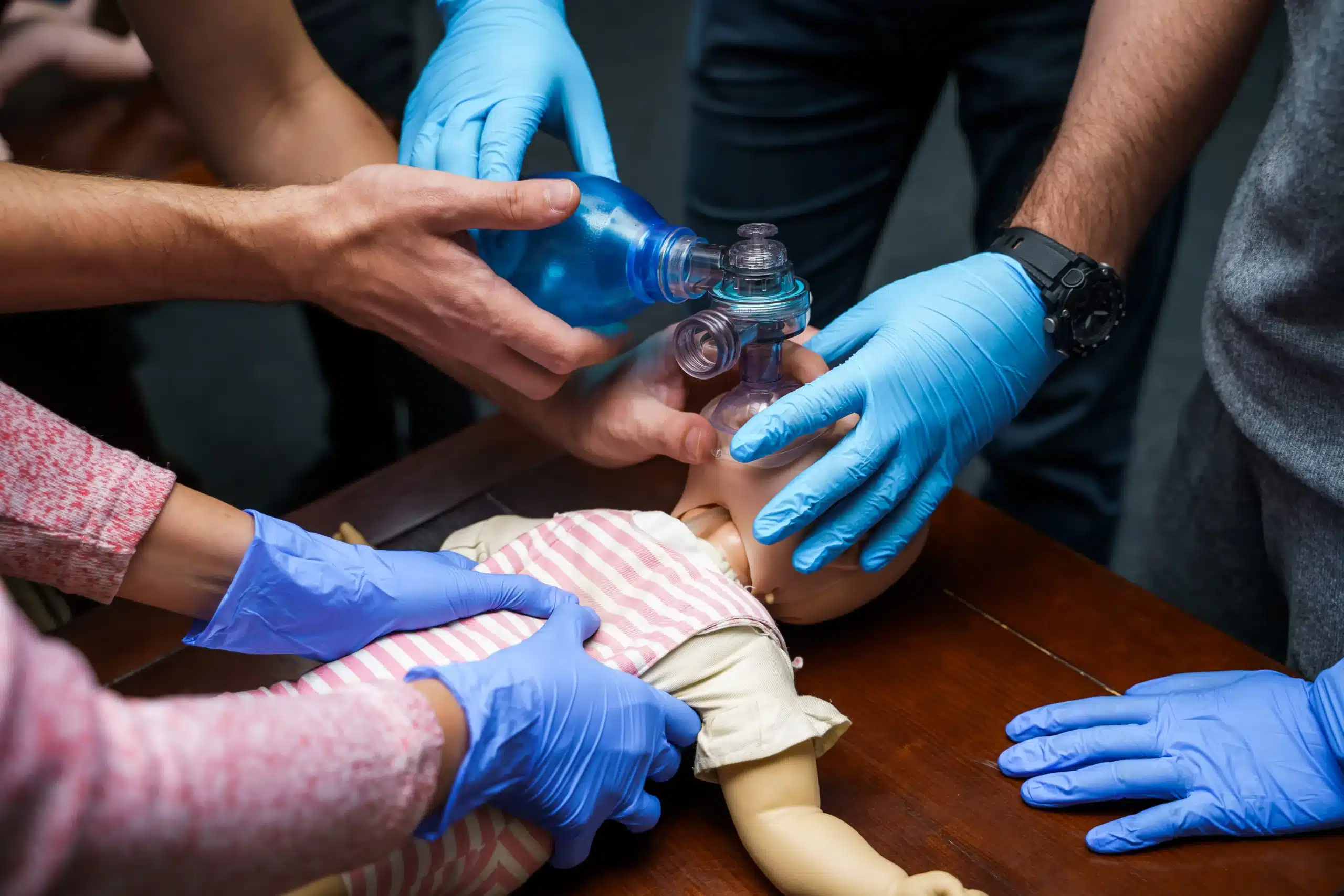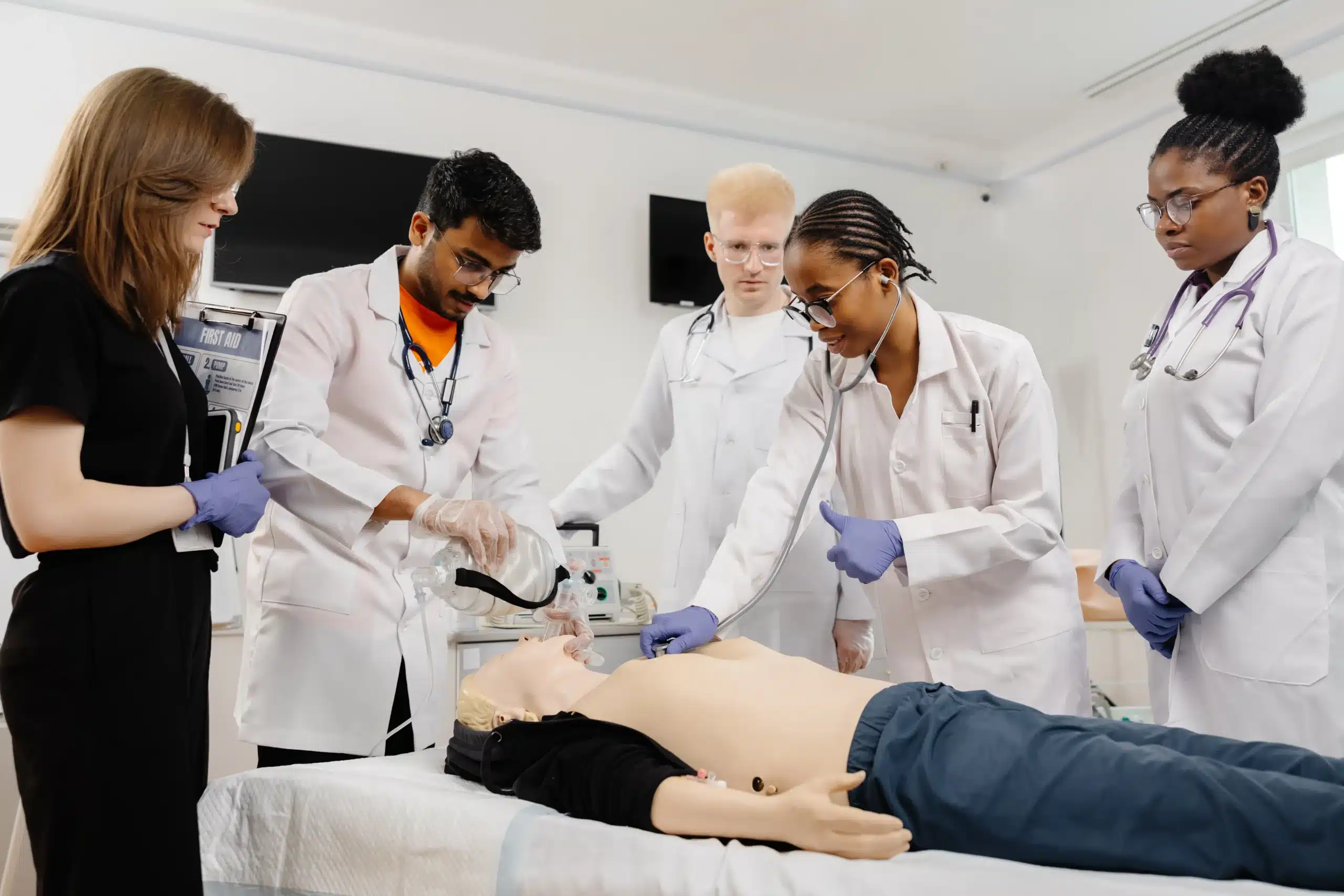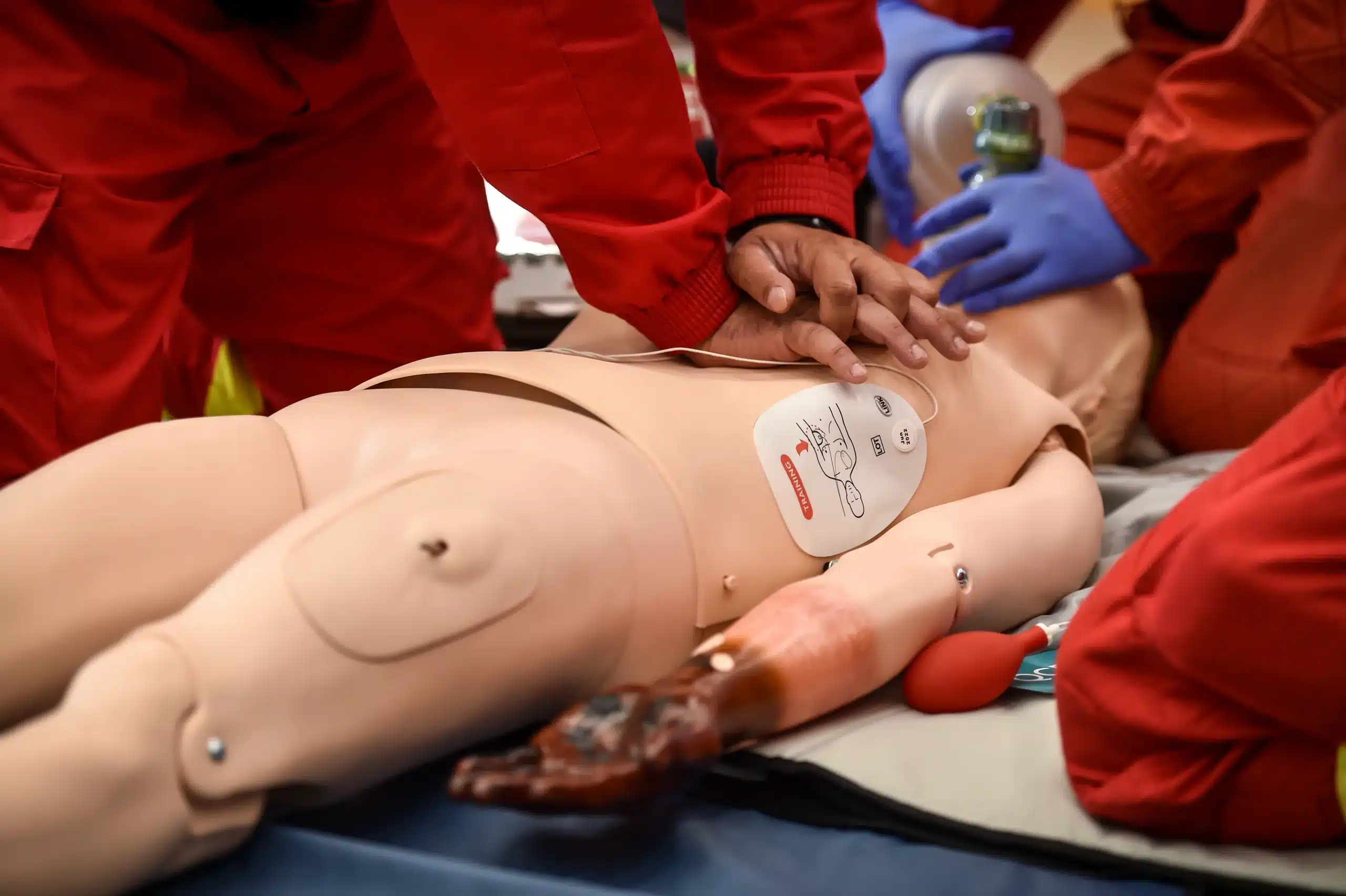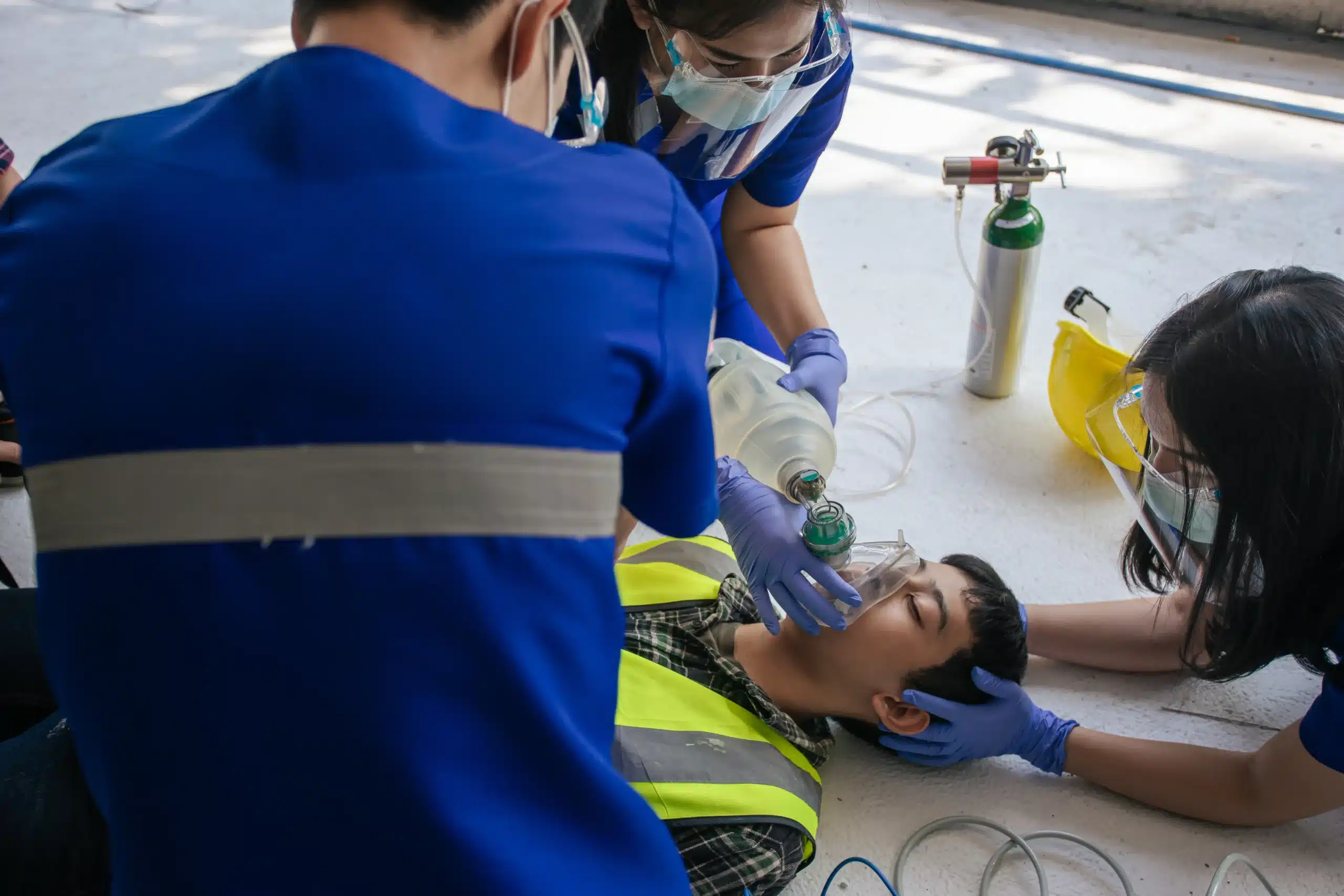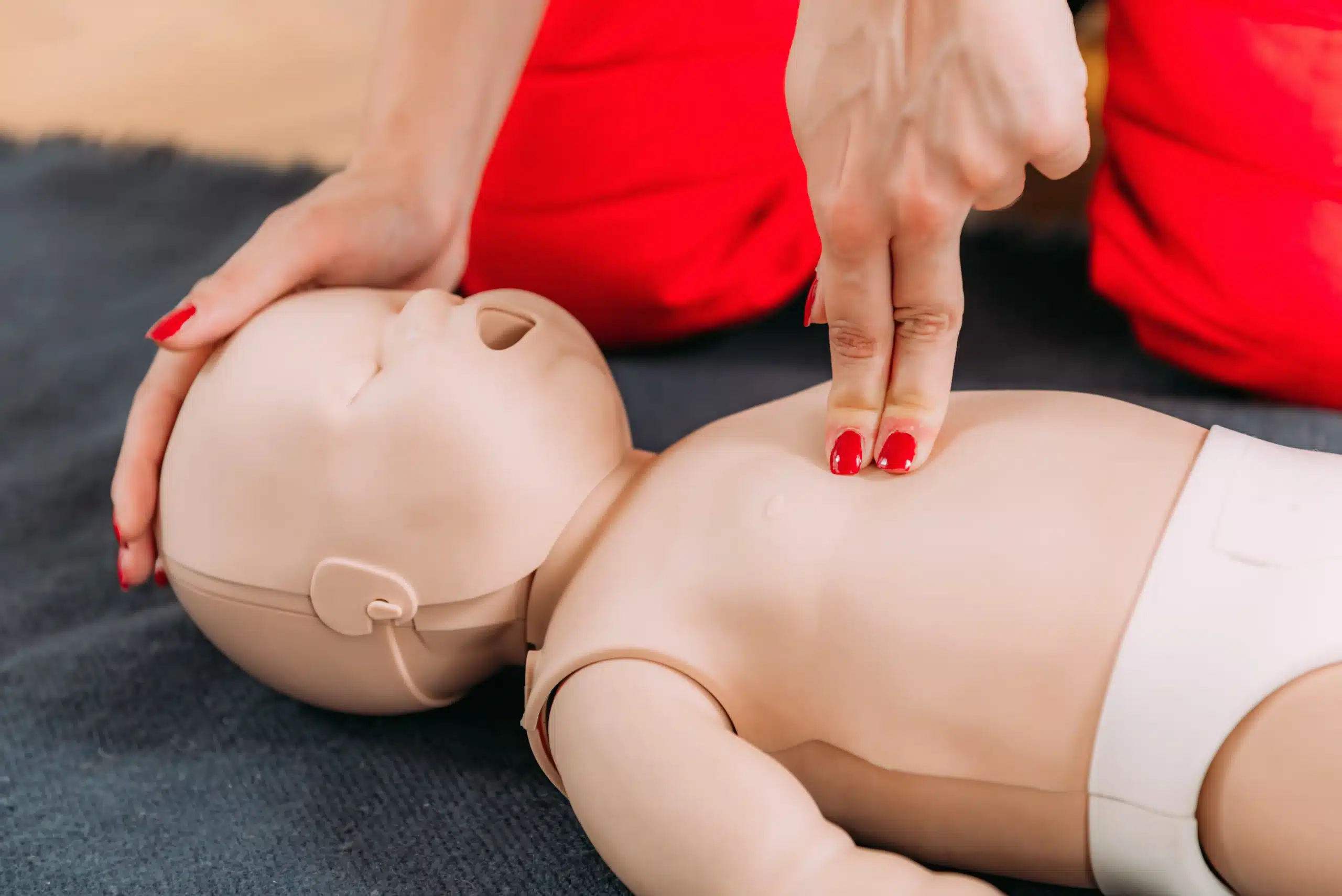Working in healthcare, you know that every second counts during a cardiac emergency. Having the right skills and training can make all the difference in patient outcomes. That’s where Advanced Cardiovascular Life Support (ACLS) comes in. This advanced training equips healthcare professionals with the knowledge and techniques to manage life-threatening cardiovascular emergencies effectively. If you’re a healthcare provider in San Francisco, finding a high-quality ACLS provider training in San Francisco is essential. This article explores the importance of ACLS, what the training entails, and how to choose the right program in San Francisco to advance your career and enhance your life-saving abilities.
Key Takeaways
- ACLS is essential for healthcare providers: It builds on basic life support skills, providing advanced training for managing life-threatening cardiovascular emergencies. This certification demonstrates a commitment to high-quality patient care and is often a job requirement in critical care settings.
- Finding the right ACLS program matters: Consider course format, cost, instructor experience, and schedule flexibility when selecting a program. Look for programs offering a blend of online learning and in-person skills practice for a comprehensive learning experience. Check reviews and testimonials to gauge program quality.
- Preparation is key for ACLS training: Ensure you meet the prerequisites, including having a current healthcare license and BLS certification. Complete the pre-course assessment and acquire the necessary study materials beforehand to maximize your learning.
What is ACLS Provider Training?
ACLS (Advanced Cardiovascular Life Support) training equips healthcare professionals with the skills to manage life-threatening emergencies. It builds on the foundation of basic life support (BLS) and focuses on advanced interventions for adult patients experiencing respiratory or cardiovascular distress. Think of it as the next level of expertise for healthcare providers in critical care settings. ACLS training helps stabilize patients and manage these situations until more advanced medical teams arrive.
Key ACLS Components
ACLS certification courses cover essential topics. You’ll learn to recognize and manage cardiac and respiratory arrest, master airway management techniques, and understand ACLS pharmacology. The curriculum also covers managing acute coronary syndromes and strokes, emphasizing effective resuscitation team dynamics. These skills are critical for coordinating care and ensuring the best possible patient outcomes. Safety Training Seminars offers a range of ACLS courses in San Francisco.
Why Healthcare Professionals Need ACLS
ACLS training goes beyond theory. It incorporates realistic scenarios to prepare healthcare professionals for the high-pressure environment of a real emergency. This practical approach is essential for professionals in settings where cardiac emergencies are a real possibility, such as emergency rooms, intensive care units, and operating rooms. ACLS certification demonstrates a commitment to high-quality patient care and is often a job requirement. It’s not just about the knowledge—it’s about applying it effectively in critical moments.
Top San Francisco ACLS Training Providers
Finding the right Advanced Cardiovascular Life Support (ACLS) training program is crucial for healthcare professionals. Here’s a look at some of the leading ACLS training providers in San Francisco:
Safety Training Seminars
Safety Training Seminars offers ACLS courses designed to meet the needs of busy professionals. As an authorized American Heart Association (AHA) Training Center, they provide high-quality instruction and certification. They pride themselves on excellent customer service and offer classes daily, making scheduling convenient. Safety Training Seminars serves San Francisco, Daly City, San Mateo, and Oakland, CA. For the latest course schedules and pricing information, visit their website. They also offer a low price guarantee.
HeartStart CPR
HeartStart CPR provides ACLS certification and renewal classes throughout the San Francisco Bay Area. Geared towards healthcare providers, their courses aim to equip professionals with the skills and knowledge needed to manage cardiovascular emergencies effectively. They are an authorized AHA training site and offer various course formats.
Bay Area CPR
Bay Area CPR offers a blended learning approach to ACLS training, combining online coursework with in-person skills sessions. This flexible format allows students to learn at their own pace and then demonstrate their proficiency in a practical setting. They offer both initial certification and renewal courses.
Superior Life Support
Superior Life Support focuses on training individuals to become ACLS instructors. Their comprehensive ACLS Instructor Course prepares participants to teach AHA ACLS courses, including initial certification, renewal, and HeartCode courses. This program is ideal for experienced healthcare professionals looking to advance their careers.
The CPR Lady
The CPR Lady offers a one-day, in-person ACLS Provider Course designed for healthcare professionals who may need to respond to cardiac emergencies. As an AHA-certified training site, they provide a hands-on learning experience focused on practical skills.
Choosing the Right ACLS Program
Finding the right ACLS program involves considering several key factors. It’s a bit like choosing the right pair of running shoes—you want something that fits your needs, your budget, and ultimately helps you perform your best.
Course Duration and Format
First, think about how much time you can commit. Initial ACLS courses typically run about 12 hours, while renewals are closer to six. If your schedule is packed, look for a blended learning format. Many providers, including Safety Training Seminars, offer a combination of online modules and shorter in-person skills sessions. This lets you work through the material at your own pace before demonstrating your skills. Bay Area CPR also offers this flexible option, allowing students to balance their training with other commitments.
Certification Costs
Cost is naturally a factor. Initial ACLS certification usually ranges from $260 to $290, with renewals between $190 and $290. Don’t hesitate to compare prices from different providers. Safety Training Seminars is known for its competitive pricing and price-match guarantee, ensuring you get the best value for your investment.
Instructor Qualifications
The quality of your training depends heavily on the instructor. Look for programs led by American Heart Association-certified instructors with proven experience. Superior Life Support emphasizes the value of experienced instructors, and combining online modules with hands-on classroom sessions often creates a more comprehensive and engaging learning experience. This blended approach allows students to benefit from both self-paced learning and direct interaction with experienced professionals.
Reviews and Testimonials
Finally, see what other students are saying. Online reviews and testimonials offer valuable insights into a program’s strengths and weaknesses. A program with consistently high ratings, like Safety Training Seminars’ 4.9-star rating on Yelp, suggests a positive and effective learning environment. Reading reviews can give you a better sense of the program’s culture, teaching style, and overall student experience. This can be incredibly helpful in making an informed decision.
What to Expect During ACLS Training
Getting ready for your ACLS class? Here’s a preview of what you’ll learn and how you’ll be evaluated. Understanding the process beforehand can help you feel more prepared and confident going into your training.
Course Curriculum
ACLS training covers essential life-saving skills, from recognizing and managing life-threatening emergencies like cardiac arrest and stroke to understanding airway management techniques and ACLS pharmacology. The curriculum also includes a BLS review and emphasizes effective resuscitation team dynamics, crucial for positive patient outcomes. HeartStart CPR offers further details on course content.
Hands-On Practice and Simulations
ACLS courses go beyond lectures and textbooks. Expect hands-on learning with medical manikins and realistic simulations of real-life emergencies, giving you a safe environment to apply your knowledge. Cascade Training Solutions offers insights into potential scenarios. This practical approach builds confidence and prepares you for actual emergencies. You’ll also practice teamwork, reinforcing the importance of clear communication during critical situations.
Evaluation Methods
Most ACLS courses, including those by Safety Training Seminars, combine online learning with in-person skills testing. You’ll typically complete a 3–4 hour online portion, followed by a 30–40 minute in-person skills test. This blended approach offers flexibility while ensuring practical competency. After successfully completing both components, you’ll receive your AHA ACLS provider card the same day, as noted by Bay Area CPR, validating your certification.
ACLS Training Prerequisites and Requirements
Before you sign up for Advanced Cardiovascular Life Support (ACLS) training, it’s helpful to understand the qualifications, assessments, and materials required. Knowing the prerequisites will help you show up prepared and ready to learn.
Required Qualifications
ACLS certification focuses on advanced life-saving techniques. Because of the complexity of these skills, the American Heart Association (AHA) requires students to hold current healthcare licenses before enrolling in an ACLS course. This typically includes professionals like paramedics, physicians, nurses, and physician assistants. You’ll also need a current AHA ACLS Provider card to qualify for the training. Check with your chosen training center to confirm their specific requirements. For example, you can find more information about ACLS courses in San Francisco on the Safety Training Seminars website.
Pre-Course Assessments
Most ACLS courses require a pre-course self-assessment (PSA) to ensure you have a basic understanding of the material. A passing score (usually 70% or higher) on the ACLS pre-course assessment is generally required. You’ll need to bring your score report and certificate of completion to the first class. This helps instructors gauge everyone’s baseline knowledge. Some providers, like The CPR Lady, include details about the pre-course assessment on their course pages.
Essential Study Materials
The 2020 AHA Advanced Cardiovascular Life Support Provider Manual is an essential resource for the course. Make sure you have your copy before class begins, as you’ll use it throughout the training. The manual covers the most up-to-date ACLS protocols and guidelines, so having it handy is key for effective learning. You can typically purchase the manual directly from the AHA or through your chosen ACLS training provider.
Getting ACLS Certified
Initial Certification Steps
Getting your initial ACLS certification involves a few key steps. You’ll want to find an accredited training center, such as Safety Training Seminars, which offers ACLS courses in San Francisco. Many providers use a blended learning format, combining online coursework with in-person skills sessions. This lets you learn the material at your own speed before demonstrating your skills to an instructor. The online portion usually takes three to four hours and covers essential concepts and procedures. Afterward, you’ll schedule a short in-person skills test (about 30–40 minutes). This hands-on component ensures you can perform the necessary skills confidently. The initial certification typically costs around $260.
Renewal Requirements and Timeframes
Your ACLS certification is valid for two years. To stay certified, you’ll need to complete a renewal course before it expires. The renewal process is similar to the initial certification and often includes online coursework and an in-person skills check. Keeping your ACLS certification current ensures you’re always up-to-date on the latest guidelines and best practices in advanced cardiac life support.
AHA Certification Standards
ACLS courses are certified by the American Heart Association (AHA), a globally recognized leader in cardiovascular health and emergency care. This AHA certification is highly respected among healthcare professionals and demonstrates your commitment to providing excellent patient care. When you choose an AHA-certified course, you can trust that your training meets the highest standards and reflects current scientific evidence. You’ll receive your official AHA ACLS provider card the same day you finish your skills test, so you can start using your new skills and knowledge right away.
Comparing San Francisco ACLS Training Options
Finding the right ACLS training course means weighing several factors. Let’s break down the key differences between programs in San Francisco to help you make a smart choice.
In-Person, Online, and Hybrid Programs
ACLS training programs typically come in three formats: in-person, online, and hybrid. In-person courses offer hands-on learning and direct interaction with instructors. Online courses provide flexibility and self-paced learning, ideal for busy schedules. Hybrid programs, like those offered by Bay Area CPR, combine online coursework with a short in-person skills session. Safety Training Seminars offers in-person classes at several locations throughout San Francisco.
Pricing Structures
Course fees vary by provider and course type (initial certification or renewal). Expect to pay anywhere from $198 (plus textbook costs at The CPR Lady) to $290 for a complete hybrid course at Bay Area CPR. Renewal courses tend to be less expensive than initial certifications. HeartStart CPR, for instance, offers ACLS renewal for $190, compared to $260 for initial certification. Safety Training Seminars also offers a low-price guarantee, ensuring a competitive rate.
Schedule Flexibility
Pick a program that fits your life. Bay Area CPR offers classes seven days a week, between 7 am and 6 pm. Safety Training Seminars also provides daily courses in San Francisco, making it easier to find a convenient time.
Location Convenience
Think about the training location and its accessibility. Safety Training Seminars has multiple locations within San Francisco. HeartStart CPR covers a broader area, including San Jose, Oakland, and other Bay Area cities. Choose a location that minimizes travel time.
Benefits of ACLS Certification
Earning your ACLS certification offers significant advantages, enhancing your career, improving patient outcomes, and fulfilling essential professional requirements. Let’s explore these benefits:
Career Advancement
ACLS training equips healthcare professionals with the skills to respond to life-threatening emergencies. It’s a powerful credential that demonstrates a commitment to advanced cardiovascular care, making you a more competitive candidate for promotions and specialized roles. This additional training can open doors to leadership positions and may increase your earning potential. Many healthcare institutions prefer or require ACLS certification for certain positions, making it essential for career progression.
Improved Patient Care
Mastering ACLS skills directly translates to improved patient care. Confidently managing emergencies and providing timely interventions can significantly impact patient outcomes, potentially leading to better survival rates and reduced long-term complications. The ability to quickly assess and address critical situations is invaluable in providing high-quality care. This translates to a more rewarding experience for healthcare providers.
Professional Requirements
For many healthcare professionals, ACLS certification isn’t just beneficial—it’s often a requirement. Hospitals, clinics, and other healthcare settings frequently mandate ACLS certification for their staff, particularly those involved in direct patient care. Maintaining your certification demonstrates your ongoing commitment to best practices and ensures you meet the necessary standards for your profession. It also helps you understand the psychological challenges that can arise in high-stress medical situations. Staying current with your ACLS training contributes to your overall well-being and effectiveness as a healthcare provider. Check with your employer or professional organization to confirm specific requirements for your role and location.
Overcoming ACLS Training Challenges
ACLS training and certification are essential for healthcare providers, but the journey can be demanding. Let’s explore some common challenges and practical strategies to overcome them.
Time Management
In high-pressure medical emergencies, every second counts. Effective time management is essential in ACLS scenarios. During training, focus on prioritizing tasks and performing interventions efficiently. Practice streamlining your approach to build confidence and improve your response time in real-world situations. This will help you deliver the best possible patient care under pressure.
Communication Barriers
Clear communication is vital during ACLS emergencies. Breakdowns in communication can hinder teamwork and delay critical actions. Establishing and practicing clear communication protocols with your team is essential. Using concise language and closed-loop communication helps prevent misunderstandings and improves overall team performance, ensuring coordinated and effective responses.
Psychological Stress
The healthcare field can be emotionally demanding, and dealing with cardiac emergencies adds another layer of psychological stress. It’s important to recognize that stress is a natural response in these high-stakes situations. Developing healthy coping mechanisms, such as mindfulness or deep breathing exercises, can help manage stress effectively. Open communication with colleagues and seeking support when needed are also crucial for navigating the emotional challenges inherent in ACLS.
Mastering Complex Scenarios
ACLS training often involves complex, realistic scenarios that simulate real-life emergencies. These simulations are designed to challenge you and prepare you for the unpredictable nature of healthcare settings. Embrace these learning opportunities to practice your skills and refine your decision-making process. The more you practice, the more confident and prepared you’ll be to handle the complexities of real-world emergencies.
Related Articles
- Online ACLS Classes Oakland: Your Guide – San Francisco CPR Classes
- ACLS Courses San Francisco: Your Complete Guide – San Francisco CPR Classes
- ACLS Renewal Near Me: Your Quick Guide – San Francisco CPR Classes
- Advanced Cardiac Life Support (ACLS) in SF – San Francisco CPR Classes
- ACLS HeartCode SF: Your Complete Certification Guide – San Francisco CPR Classes
Frequently Asked Questions
What is the difference between BLS and ACLS? BLS (Basic Life Support) teaches fundamental life-saving techniques, including CPR and using an AED. ACLS (Advanced Cardiovascular Life Support) builds upon BLS, focusing on advanced interventions for managing life-threatening cardiovascular emergencies in adults. ACLS covers more complex scenarios and requires a current healthcare license.
How long is ACLS certification valid? ACLS certification is typically valid for two years. You’ll need to take a renewal course to maintain your certification and stay up-to-date on the latest guidelines.
What if I don’t have a medical background? Can I still take an ACLS course? ACLS courses are designed for healthcare professionals with current licenses, such as physicians, nurses, and paramedics. While anyone can learn CPR, ACLS focuses on advanced techniques requiring a foundation in healthcare practices. If you’re interested in learning basic life support skills, a BLS course would be more appropriate.
How can I find an ACLS course near me? Several organizations offer ACLS courses, including the providers mentioned in this blog post. You can also search the American Heart Association website for certified training centers in your area. When choosing a provider, consider factors like course format (in-person, online, or hybrid), schedule flexibility, cost, and instructor experience.
What can I expect during the ACLS skills test? The ACLS skills test evaluates your ability to perform essential life-saving procedures. You’ll be assessed on skills like CPR, airway management, and using an AED. The test usually involves realistic scenarios to gauge your response in a simulated emergency. Practice beforehand and review the course materials to build confidence and ensure you’re prepared.


